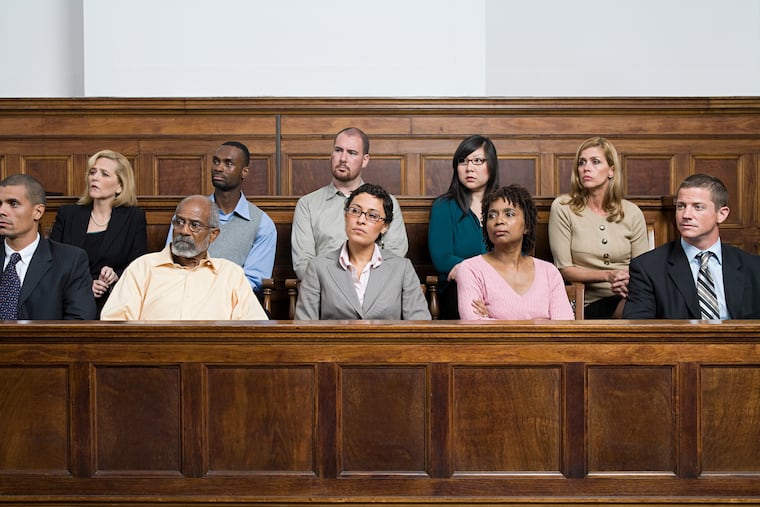Jury duty desperately needs reforms, including more money for jurors in Philly | Opinion
We must reform the jury duty system to be more accessible by reducing the hardships of serving, and promote it as impactful for criminal justice.

In the recent primary, Philadelphia re-elected one of the country’s most progressive District Attorneys by a wide margin, while multiple judges openly campaigned on a progressive platform. Clearly, the city is intent on reforming our criminal justice system.
But there is one crucial part of the court system missing from discussions about progressive reform in Philadelphia: jury duty.
Jury duty is one of the few places an ordinary citizen can enact powerful criminal justice reform. Twelve “regular” people proved that to the world when the jury for the Derek Chauvin trial found him guilty of murder.
» READ MORE: Why Pennsylvania jury duty pays $9 per day
But the perception of jury duty is that it is a terrible activity that one should try to get out of at all costs. It can be inconvenient, uncomfortable, and boring. (Except for Phily’s “jury duty lady” who keeps spirits up with songs and jokes, of course. She’s great.) In fact, so many people dread getting their notice to serve that, according to a 2018 report from the First Judicial District, about 200,000 people per year (more than one-third of city residents) do not even respond to their summons.
Many people have legitimate reasons why they can’t show up: They have no childcare, their employers won’t give them time off, or they simply can’t afford it.
Though the law promises a trial by a “jury of peers,” the system often leaves a lot of people out, narrowing the make-up of our juries.
To ensure juries represent Philadelphia’s population, we need to do more to remove hardships and open up eligibility for potential jurors.
For one, we have to increase compensation. Jury duty in Pennsylvania pays $9 per day for the first three days, after which it goes up to $25/day. The pay was established back in 1959, when the minimum wage was $1 an hour, and has stagnated since. Today, with inflation, that $9 would be $80 per day. And Pennsylvania employers are not required to pay employees for time off spent serving jury duty.
In addition to the inadequate pay, there are no options for child care coverage, nor reimbursement of out-of-pocket costs including travel or meal-related expenses (other than a sweet Reading Terminal Market discount). What’s more, anyone who has been convicted of a crime that comes with at least a one-year term in jail is banned from serving on a jury in Pennsylvania.
» READ MORE: As COVID-19 continues to impact Philly’s criminal courts, some lawyers say a lack of vaccines is ‘life-threatening’
These barriers to jury duty disproportionately keep out Black and brown communities, thus reducing the court’s ability to have a jury pool that truly reflects Philadelphia. Access to the jury box is a critical element to criminal justice reform, and it is being denied to those disproportionately impacted by the criminal justice system and over-policing. By intent or by ignorance, this is another example of institutional and systemic racism that must be corrected.
Anyone who cares about criminal justice reform should care about this issue. If you’ve marched in the streets, you should show up for jury duty, and work to make it easier for others to, as well.
Juries don’t only return verdicts — they can decide if the law itself is unjust. Jury nullification — the act of deciding the law is immoral or wrongly applied to the defendant — can be used to correct wrongful police activity and over-prosecution. It publicly questions the authority’s response to an incident. It is the power of deciding that an individual is not guilty — not because they didn’t break the law, but because the law itself is broken. Juries throughout history have relied on it to avoid convicting runaway enslaved people or those who helped them, as well as protestors against the Vietnam war; today, juries turn to nullification to for example show mercy on low-level drug offenders facing harsh drug laws or mandatory sentences.
We must reform the jury duty system to be more accessible by reducing the hardships of serving, and promote it as an important and life-changing act of criminal justice reform. We should incentivize and reward participation, rather than continue to promote a negative narrative. Let’s treat jury duty as the awesome civic responsibility it truly is.
Jen Devor is a resident of Point Breeze and president and co-founder of Better Civics, a nonpartisan nonprofit dedicated to revolutionizing civic engagement and voter turnout.